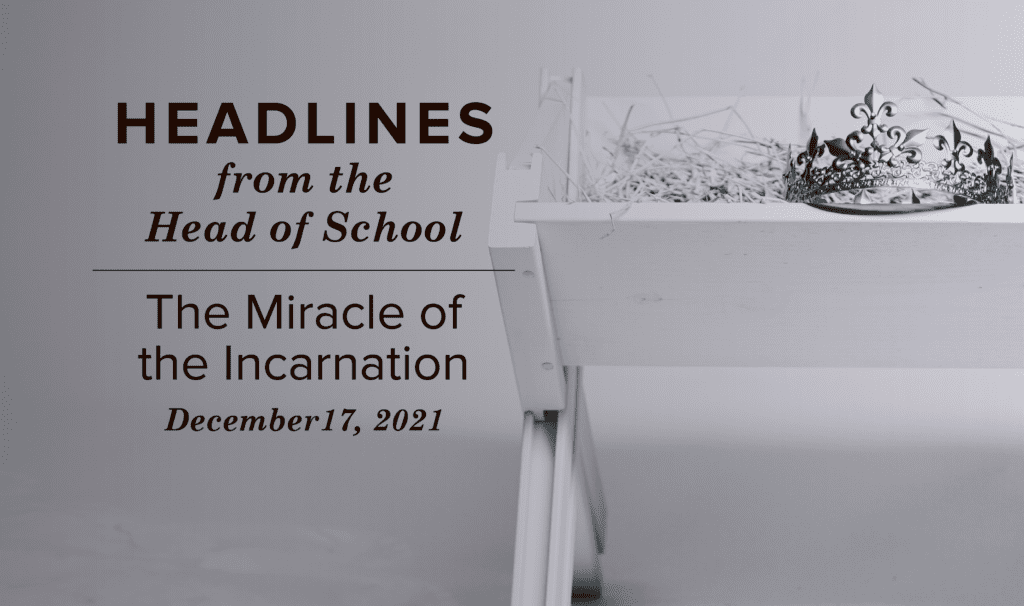The Miracle of the Incarnation
By Dr. Jeff Marx

December 17, 2021
Dear Hill Country Community,
Every year, during the Christmas season, I ponder the greatest miracle – the incarnation, when God became a man. If you’ve been around for a few years, you may recall a previous Headlines article from December 2018, and I find myself in a similar place again this year, with a small twist. I’ve been reflecting on how God prepared His people for salvation (Christ), and specifically on Paul’s view of the birth of Jesus.
When I was a young believer (I accepted Christ at age 30), I was quite bothered (and rather lost) by all the rules required by God under the Mosaic Law (e.g., Exodus 20; Deuteronomy 5). This was most poignant reading Exodus, Leviticus, and Deuteronomy, much of which seemed unnecessarily detailed for my modern western mind. The system of animal sacrifices especially bothered my cultural sensibilities! However, the Hebrews did not think of “the law” as overly burdensome, but as an honor, because they had been chosen as God’s people. Unfortunately, over time they began to think of the rituals as primary rather than a means to an end – to love God and love others (Deut. 6:5; Lev. 19:18b).
One of my favorite Scriptures is Galatians 3:24, “So the law was put in charge to lead us to Christ…” It turns out that all those Old Testament rules were simply a tool used by God to teach His people they were incapable of being holy on their own, due to sin (Psa. 14:1-3, Rom. 3:23-24). People need to recognize their own depravity before they accept a savior. Animal sacrifices under the Mosaic Law taught the people of God that the penalty for sin is death (Rom. 6:23), and foreshadowed the perfect sacrifice, made once for all (Heb. 10:1-10).
The most detailed description of Jesus’ birth is offered by Luke (Luke 1-2). One would expect that Paul’s influence on Luke was significant, given the two traveled together on Paul’s second and third missionary journeys (See the use of “we” by Luke beginning in Acts 16:10. Note that the gospel of Luke and the book of Acts were both written by Luke.).
With all of that in mind, this Christmas I have been focused mainly on Paul’s words in Philippians 2:5-11 and Colossians 1:15-20. These two sections offer the highest Christology in the New Testament.
In Colossians, Paul reminds us of who Christ is and what He did for us. “For God was pleased to have all his fullness dwell in him, and through him to reconcile to himself all things, whether things on earth or things in heaven, by making peace through his blood shed on the cross.” (Col. 1:19-20. Bold [for God the father] and italics [for Christ] added to identify pronoun antecedents).
In Philippians, Paul raises the incarnation to elicit a proper response – humility. “Your attitude should be the same as that of Jesus Christ: Who, being in very nature God, did not consider equality with God something to be grasped, but made himself nothing, taking the very nature of a servant, being made in human likeness. And being found in appearance as a man, he humbled himself and became obedient to death – even death on a cross!” (Phil 2:5-8)
By reflecting on the incarnation this season, I hope to adopt a more humble attitude in 2022.
How will you be changed by the incarnation this year?
Blessings,
Dr. Jeff MarxHead of School
(All Bible references taken from the NIV 1984 translation.)